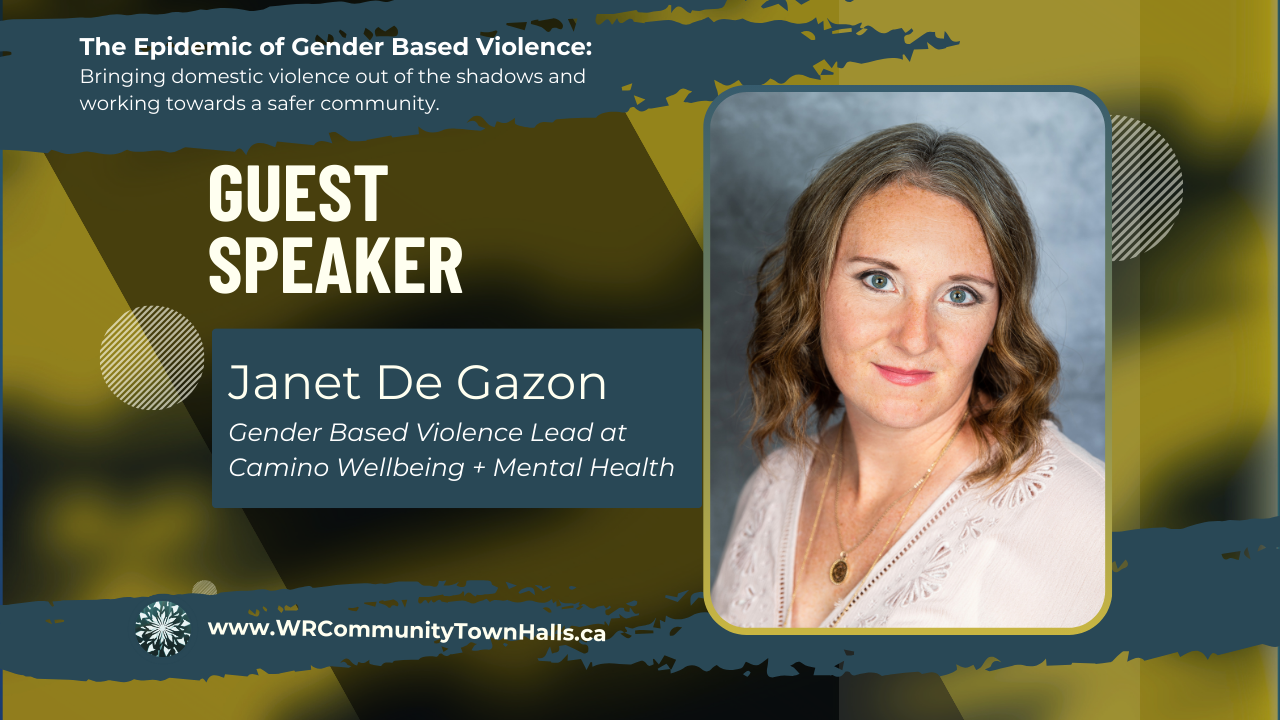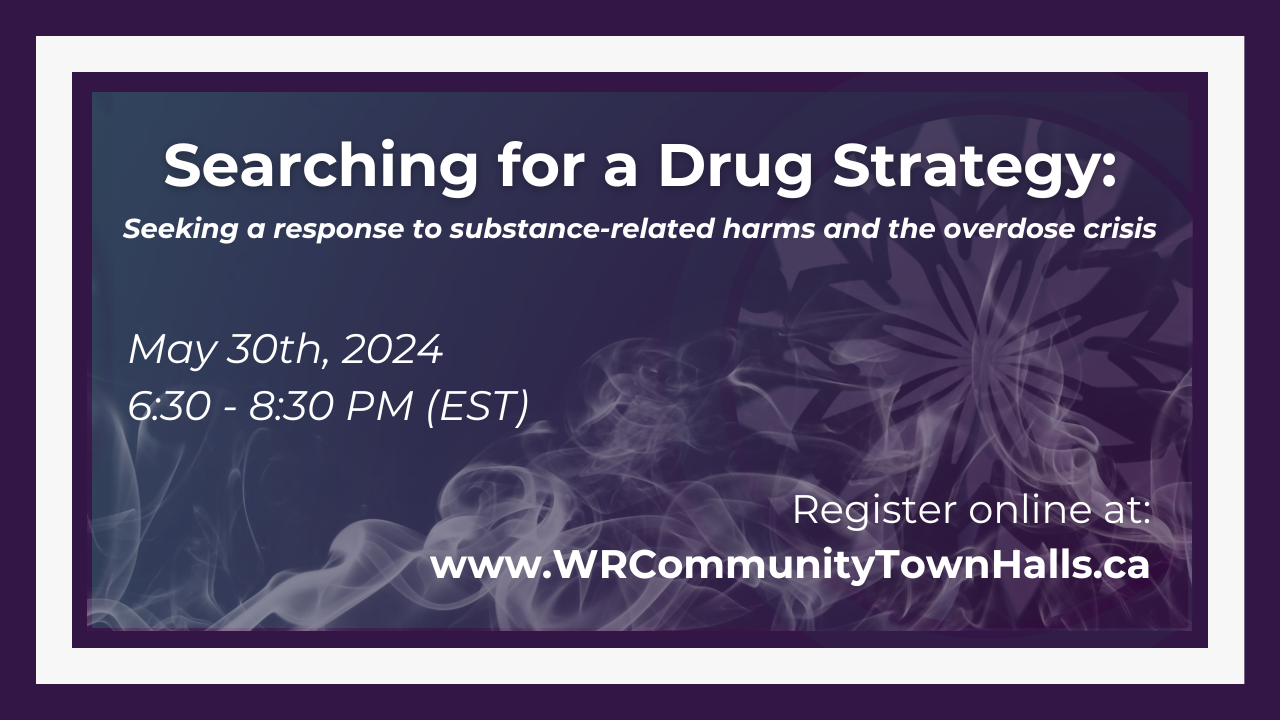|
|
The Epidemic of
|
Janet De Gazon
Gender Based Violence Lead at Camino Wellbeing & Mental Health
|
Janet De Gazon is the Gender Based Violence Lead at Camino Wellbeing + Mental Health. She coordinates and facilitates the Strong Moms, Safe Kids group; supporting mother's who have experienced intimate partner violence and their children. Janet also provides training and education about supporting survivors and those at risk of abuse including screening, assessing and safety planning. She is the co-chair of the Waterloo Region Domestic Violence Service Coordination Committee and is a Registered Psychotherapist and Child and Youth Worker.
Previously Janet worked in children’s mental health as the provincial Intake Worker for the Internet Child Exploitation program and as a child abuse prevention educator.
|
|
Presentation FootagePresentation SlidesSlides above provided by guest speaker Janet De Gazon
|
Camino Wellbeing + Mental HealthContact Camino
|
Empathy & Understanding: Janet de Gazon
- Emphasizing Empathy in Addressing Abuse: Janet de Gazon from Camino highlights the importance of empathy and compassion in understanding the complexities faced by survivors of abuse, challenging the often judgmental question, "Why didn't you just leave?"
- Identification of Key Barriers: De Gazon identifies various barriers to leaving an abusive relationship, including fear for personal safety and that of children, economic constraints, mental health challenges, and societal judgment.
- Unified Support Approach: Camino, a unification of several support organizations, offers a range of services from birth to seniors, including specific support for those experiencing gender-based violence.
- The Importance of Mental Health and Wellbeing: Acknowledging the mental exhaustion and emotional toll on survivors, de Gazon stresses the significance of understanding these impacts when providing support.
- Community Resources and Training: She also highlights resources like "Neighbors, Friends, and Family" for community training and the broad spectrum of services Camino offers, including relationship support, counselling, and group workshops.
Janet de Gazon, representing Camino Wellbeing and Mental Health, underscores the need for empathy and understanding in addressing the barriers faced by survivors of abusive relationships. She emphasises that questions like "Why didn't you just leave?" often carry unintended judgment and shame, shifting the responsibility onto the survivor instead of the abuser. De Gazon advocates for reframing these questions to focus on the barriers to leaving and what can be done to enhance safety.
She categorizes the barriers to leaving an abusive relationship into several themes, such as fear (including fear for children's safety), economic abuse, mental health and wellbeing, and societal judgment. De Gazon points out the complexity of these barriers, highlighting how they can make it difficult and sometimes unsafe to leave an abusive relationship.
De Gazon introduces Camino as a unified effort of various organizations to provide holistic support across different life stages and specific support for gender-based violence survivors. She speaks about the mental exhaustion survivors endure and the impact of navigating the legal system and potential brain injuries, as discussed by other speakers.
She also emphasizes the importance of community resources and training for those who want to support survivors. The “Neighbors, Friends, and Family” program by the University of Western is mentioned as an invaluable resource for this purpose. De Gazon then outlines the range of services offered by Camino, from individual and family counselling to specific support groups for survivors, highlighting their inclusive approach to catering to diverse communities, including LGBTQIA+ individuals and newcomers.
De Gazon's presentation brings to light the multifaceted challenges faced by survivors of abuse and the critical role of empathy and comprehensive support systems in addressing these challenges. Her insights reflect a deep understanding of the nuances involved in abusive relationships and the need for community-wide engagement to provide effective support.



